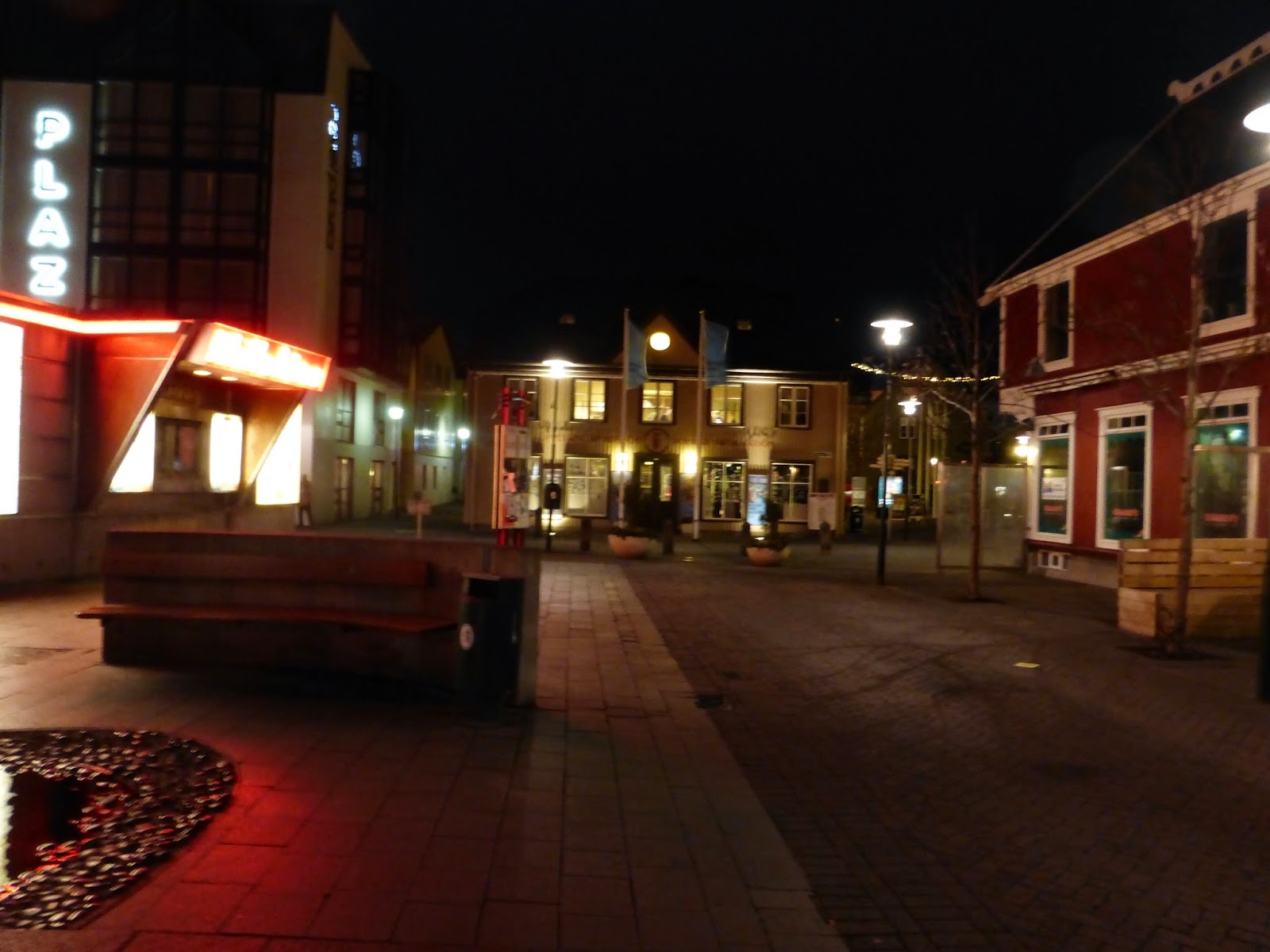Eventually the sky lightened to a soupy gray and stayed there all day. No sun, and with this cloud cover, no chance of seeing the northern lights tonight.
With numerous stops to consult the map, I drove out of Reykjavik to see an important place in legal history. I'd never heard of Althing until a friend told me about it. Either I have forgotten or we never covered Icelandic history in school.
In 930 the inhabitants of Iceland established one of the oldest parliamentary assemblies in the world, modeled after the Gulatinget in Norway. Thing (looks like Ping in old Norse) means assembly. The assembly met every year from 930 to 1798, although after 1262 the nature of the Althing changed when Iceland pledged allegiance to the king of Norway (Over time the monarchy granted more autonomy to Iceland, and full independence as a republic was again achieved in 1844)
The Althing was a gathering of the 48 leading chieftains, along with their groups of supporters. Laws were made or amended by the chieftains, and those accused of crimes were tried by a jury of free farmers (if you didn't own land, you were required to contract with a landowner for yearly periods, and were therefore a sort of indentured servant).
Initially laws were not written down, and so at each annual gathering the Law Speaker, who was elected for a three year term, recited a third of them. Majority vote was not the basis for new laws. If an individual had not voted for a law, they were not bound by it, so consensus was critical. By 1117 the laws were codified, and no longer had to be memorized and recited.
By 1005 there were two levels of courts: a District court and a Supreme court. If the District court's decision was not unanimous, it would be referred up to the Supreme court, where a decision could be reached by majority vote. Criminals could have a monetary fine levied, they could be temporarily banished abroad, or they could be banished for life with permission for anyone to kill the outlaw (but no actual death penalty existed). However, for lawsuits, enforcement of any verdict was left to the successful party; using physical violence was perfectly acceptable.
Iceland was even more sparsely populated at that time than it is day (by the time of the first census in 1703 there were 50,358 people, and in 1706-1709 about 18,000 of those died in a small pox epidemic). The annual Althing became a major social event as well as administrative and legal. I'm picturing something on the order of a medieval fair. Various groups had booths for shelter during the two week Althing, venders sold food, remedies, musicians and others performed, beggars asked, and love affairs began.
Alas, over time power consolidated in a few chieftains and abuse of power ran rampant, eventually resulting in ceding their legislative power to a foreign king. It seems that the power of self determination requires the power to enforce those choices.
This is the Law Rock at Thingvellir where the assemblies were held.
The two continents continue to move at a rate of about 2 cm/year-even a snail's pace would look like a sprint!- and this movement is particularly visible at Thingvellir. The movement isn't continuous, but happens in bursts when there is an earthquake. In 1789 an earthquake caused movement of 60 cm, for instance.
Continental drift and human behavior both leave some unanswered questions, which I recommend to your consideration.




No comments:
Post a Comment